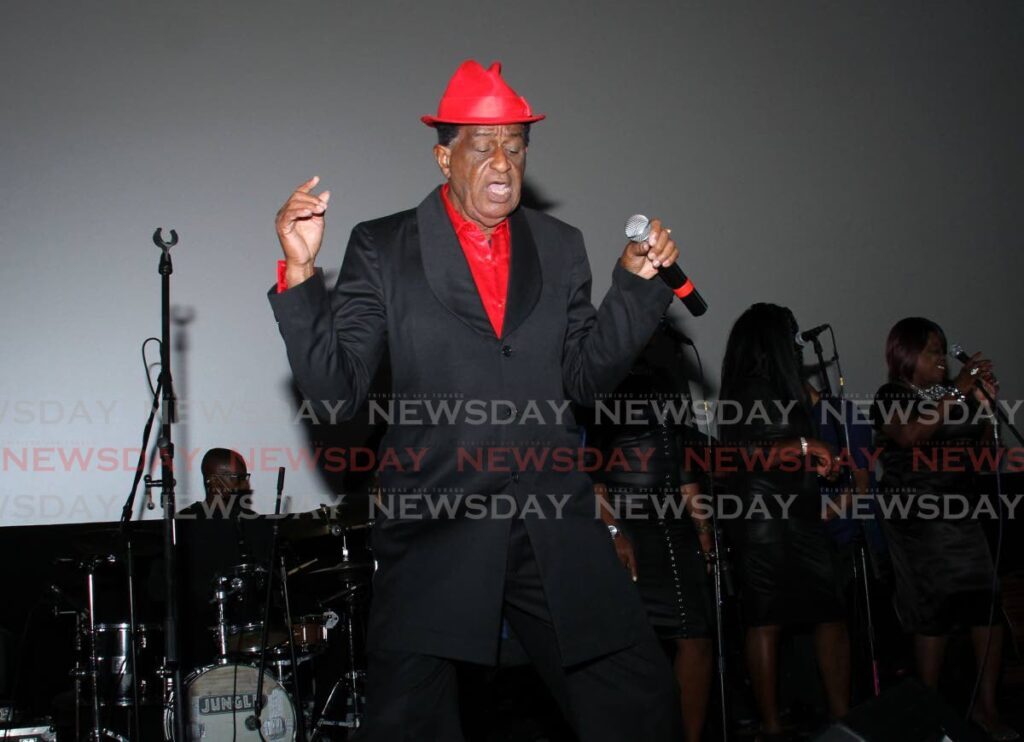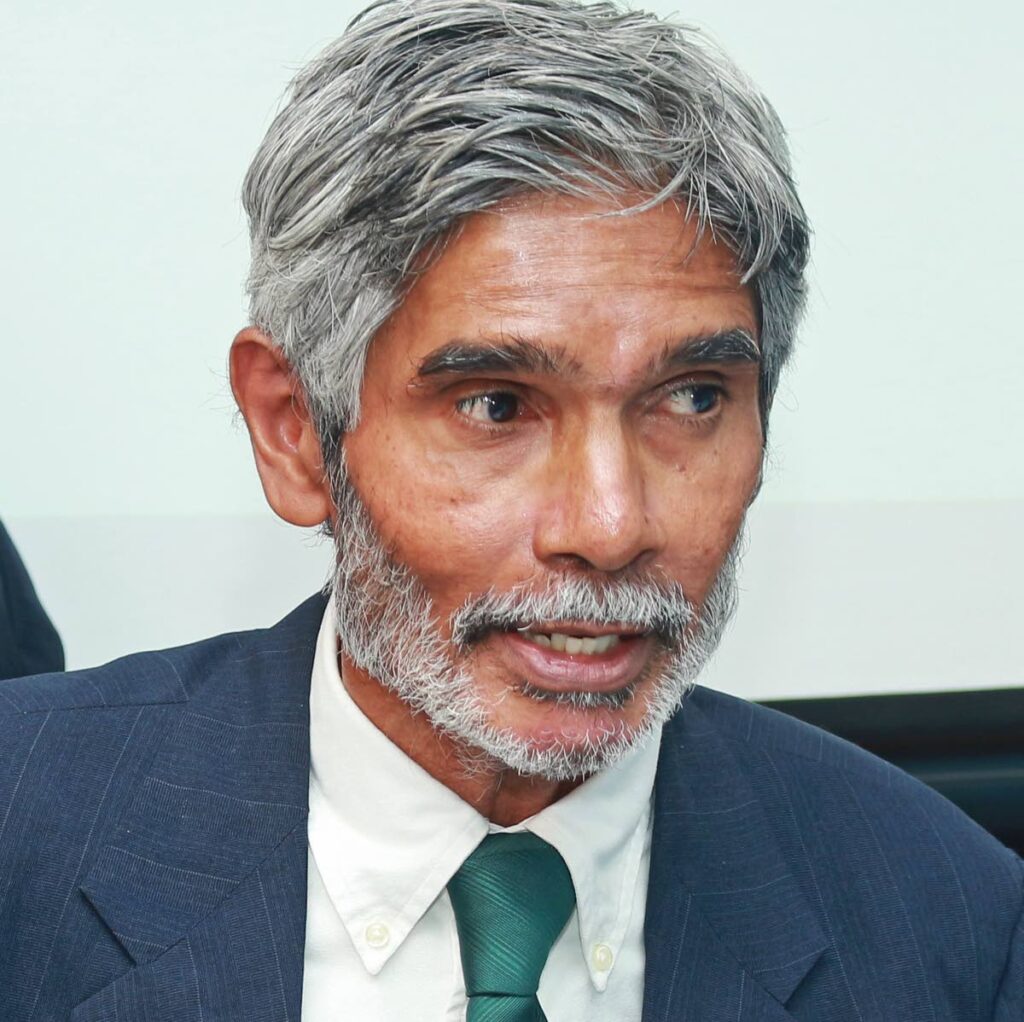Funny: The serious genius

WAYNE KUBLALSINGH
THIS YEAR marks the 60th anniversary of Master/Lord Funny’s first stage appearance. He performed on Carnival Friday night at the Queen’s Hall in 1965. Funny is now 85. On February 6, he performed two of his songs at the Calypso Review tent in Arima. The first was about time, the second about a true story that is not true.
While walking in the city, Funny met an old girlfriend. The twosome began reminiscing. About their childhood days, in school, their green days by the river. Funny recounts the encounter:
We grew up from small,
She was surprised to see
How muscular that I got,
And so handsome and tall;
She say, it doesn’t seem like long,
We were so very young.
You mean so much time went by?
Like was just the other day
We used to run and play;
Oh, how time could really fly.
Funny regaled his friend with the following treatise on time:
Day before yesterday
Was yesterday yesterday;
Yesterday was today yesterday;
Today was tomorrow yesterday;
Tomorrow today, go be yesterday;
Day after tomorrow, tomorrow,
Go be yesterday.
Funny’s chorus (response) supports his paradoxical lesson (call):
Time does fly.
How time does fly.
How time, does flyyyy.
Many great bards, philosophers, scientists have given us their provocative and paradoxical epistles on time.
I wasted time, and now doth time waste me (Richard II);
What is past is prologue (Tempest).
To-morrow, and to-morrow, and to-morrow, Creeps in this petty pace from day to day, To the last syllable of recorded time (Macbeth). Albert Einstein, in his General Theory of Relativity, posited that time is not constant; it is relative to space.
Time flies. Even before today rounds the corner, it seems, it becomes yesterday. After tomorrow will soon become a yesterday, today’s tomorrow. The day before yesterday was yesterday’s yesterday. All our histories and lives are soon heaped into a layered rack of yesterdays. No one may stop life, their futures from becoming yesterdays. Thus says Master Funny.
Funny’s diction, enunciation are crisp and studio clear. His intonation, phrasing, modulation, timing are impeccable. Following the dictum of Polonius in Hamlet, “never a borrower or a lender be,” he neither begs, borrows, nor buys songs. For over 70 years, he has been mining his own wit, stirred by everyday happenings, a newspaper story, a line in the Students Companion, a conversation, to create masterpiece after masterpiece of wit.
Polonius avers that “brevity is the soul of wit.” I say that wit is the soul of kaiso. And Funny epitomises the highest estate of wit. He is not merely a funny or jokey man; fun and jokes are not the end of this songs. He uses wit and humour to instruct the king and court, all of us.

Like the historic griot or court jester, he does not bludgeon us with condemnation. He spices unsavoury truths with the salt and spice of wit. He uses puzzling language, paradoxes, conundrums to amuse us into laughing at our foibles, manners, selves. He is ultimately social, political.
And Funny does not need elaborate stage props, moko jumbies, dancers and flag wavers, to dramatise his, what the competition rules call “presentation.” Funny is his own choreography. Minimalist, but extraordinarily expressive. The movement of his hands and fingers, his steps, his facial movement, the dramatic resonances, inflexions of his voice; his own home-made dress designs. Nothing is out of step, out of sync.
Funny introduced his second song with the following lines: “Alright, this next song is a true story that is not true. A true story that never happened.” Again, wit, paradox, the inversion of phrases to epitomise the inherently ironic nature of existence.
People calling up, to congratulate me,
All ah them hear ah win money;
I don’t know who the hell tell them so,
But the talk start to spread, Funny win Lotto.
Well, this woman, she don’t know if is true,
She ten children, I must buy they books and shoe;
Them schools want a computer,
They want PA system, they want typewriter.
The banks and them calling on the phone,
I eh ask for no borrow but they approve meh loan;
Insurance is a next humbug,
Just to get the money, they’ll insure your dog.
The banks and insurance companies are not spared! Every proverbial bi*** (female dog) and she brother swear that Funny has won the Lotto. And want a piece of the Lotto pie. How come? Where are they getting this information? From she say, he say, they say:
Allyuh eh hear?
Funny is a millionaire;
All you don’t know,
Funny win the Lotto;
She say, them say, he say,
She hear them hear, he hear,
She know them know, he know
Funny win the Lotto.
And she say, he hear, they know, continue:
One gone New York to tell she friend,
She see me driving a new brand Mercedes Benz;
Ah next one say she know for a fact,
That I bought a house in Federation Park;
I give a vagrant a dollar down by ah store,
I hear the talk, he want a hundred more.
They say meh wife and meh children gone to shop up North,
But hear this, none of them even have a passport;
A ole time pardner living down the street,
Send to say, he can’t eat meat,
I must buy he teeth.
This is the Erla syndrome. Every Tom, Dick and Harry know; implying, suggesting, assuming, insinuating, conjecturing, from top dog down (the experts, radio hosts, meme-sters, partisan hacks, news headlines, the national leader) that the CoP is guilty. Even before the DPP reads the files, before charges are laid, before vital facts are known. Our national malaise.
Our nation ought to learn, reassess, value. Revalue value. What is kaiso, what is kaiso choreography, what is kaiso art? And to institute an annual poet laureate award of TT; where the voices of Funny, and other neglected, misunderstood geniuses, would be vindicated.

Comments
"Funny: The serious genius"